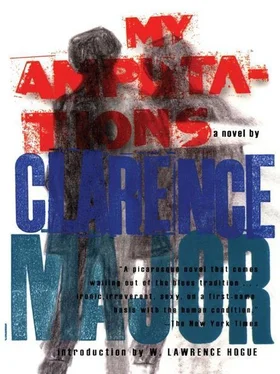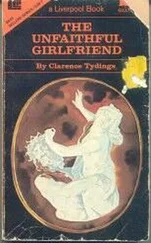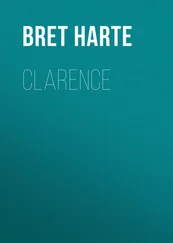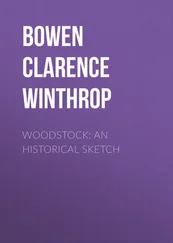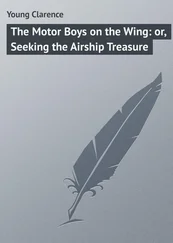Clarence Major - My Amputations
Здесь есть возможность читать онлайн «Clarence Major - My Amputations» весь текст электронной книги совершенно бесплатно (целиком полную версию без сокращений). В некоторых случаях можно слушать аудио, скачать через торрент в формате fb2 и присутствует краткое содержание. Год выпуска: 2008, Издательство: Fiction Collective 2, Жанр: Современная проза, на английском языке. Описание произведения, (предисловие) а так же отзывы посетителей доступны на портале библиотеки ЛибКат.
- Название:My Amputations
- Автор:
- Издательство:Fiction Collective 2
- Жанр:
- Год:2008
- ISBN:нет данных
- Рейтинг книги:5 / 5. Голосов: 1
-
Избранное:Добавить в избранное
- Отзывы:
-
Ваша оценка:
- 100
- 1
- 2
- 3
- 4
- 5
My Amputations: краткое содержание, описание и аннотация
Предлагаем к чтению аннотацию, описание, краткое содержание или предисловие (зависит от того, что написал сам автор книги «My Amputations»). Если вы не нашли необходимую информацию о книге — напишите в комментариях, мы постараемся отыскать её.
My Amputations — читать онлайн бесплатно полную книгу (весь текст) целиком
Ниже представлен текст книги, разбитый по страницам. Система сохранения места последней прочитанной страницы, позволяет с удобством читать онлайн бесплатно книгу «My Amputations», без необходимости каждый раз заново искать на чём Вы остановились. Поставьте закладку, и сможете в любой момент перейти на страницу, на которой закончили чтение.
Интервал:
Закладка:
A light drizzle in May: the morning smelled of pine: no Sherwood Anderson sky here over Seattle. Two cheery English professors picked him up in a monkeyshit-green Buick station wagon. The airport was the most untrustworthy he'd seen. Had it been constructed to trap him? And two weird professors? As they tried to engage him in a discussion of swindling in literature all he could think of was the new smackaroos going into his bank account at Chase. The two guys were drinking buddies. Mason agreed to stop with them for a short one. It was one thirty — the lecture wasn't till nine the next morning. That night: they'd take him to dinner at Professor Melvin Lester Bark's, their “most distinguished (ex-CIA) personage of historical literary scholarship.” Bob and Kit, these two, already slightly juiced-eyed, led Mason into a smelly pub on the secret end of North East One Hundred and Twenty-Eighth Street, an old neighborhood bar, their favorite, complete with bar flies, stuck fan in ceiling, unearthly sawdust on floor. Good-Time Charlies, they joked about old ex-agent Bark and his fuddy-duddy fraudulent “historical scholarship.” They hadn't been able to get him to even read good Bellow let alone bad Barthelme. On the q.t., his wife was nice though and they were sure the dinner party would go well. Kit, the thinner, darker one, told Mason he'd tried to read one of his novels, but got confused. He couldn't tell what was going on. Mason smiled. Bob, with dimples and a twinkle, said, “I tried too, and I think I missed something.” Mason wasn't going to bite. This was a crow-hop. Take me to your leader, boys. That night they picked him up at the campus guest house. He was in the faculty club having a drink. Bark lived on Mercer Island so it would take awhile in the rush hour traffic. An early start was wise. The ferry boat was a twilight-lit sea dragon. After that, a short drive through a damp plush wooded area. Bark was a big man with a pumping handshake and a big smile. Mason didn't catch all the names though he was being told as he gripped one hand after another. A plump light-haired woman with tiny hands. One dark in a low-cut dress with a profusion of pimples all over her chest. A weasel guy. An old poet with yellow teeth and age spots on the backs of his hands. Mason got cornered by the tiny hands-woman. “You have children?” “Yes.” “How many?” “About, oh, thirty, maybe forty.” She gave him a look. Cocked her head. He could see she felt put on. She started to laugh, decided not to, then walked away. He was sick of these people who always wanted to talk about their children. The host had brought up good wine from his secret cellar and many were sampling various ones. Others worked on aperitifs and mixed drinks. Low chatter about deception in the department against subdued Mozart. Plush carpets beneath feet. Indirect lighting. Nothing blue or breezy. Tone: definitely not racy or risque: something almost “old family” British. The dark woman with pimples sat on one side of Mason at dinner and Kit on the other. Kit wanted to know what he thought of detective stories. Was Kit some sort of plotter? Sandra Pirsig, Miss Pimples, wanted to know how long he'd be in Seattle. His mouth was full of mystery steak: he couldn't answer either one. By the time Don Giovanni-Ellis was delivered back to the faculty club he was half drunk and suffering with acute sinusitis. Kit's tail lights finally vanished down the driveway. Mason thought of walking. But, The Impostor might be out there in the shadows! Yet lying down would only increase the congestion, the pain. The villainous damp night air had quickly gotten to him. He turned back. Slept poorly. But the coffee in the morning helped. He had a piece of toast with it. Then it was Sandra Pirsig, this time in a plain sweater and skirt, who came for him. He noticed something suggestive in her eye, a kind of nervous vibration from her body reached his. Funny business. Mason read to three hundred students in a lecture hall then talked half an hour. About? Literary snow jobs, blarney-festerings, writerly deception and the conflict and exchange between these states and the sacred grounds of truth. What else? Hum. Then they took him to lunch and he was, finally, at three-thirty free. Sandra asked him if he wanted to be driven anywhere special. No, he wanted to walk. She thought that interesting and decided to walk with him. She led him down to the shopping area near the university. A pleasant hocus pocus afternoon: an unclear tricky day, and green, green, green and gray, hard gray. The sky was, in part, swollen with dental cement — and sculptures of Presbyterian cows grazing on wet cotton. A mist hung low in the undergrowth as they cut through the park. She kept probing him about himself but his answers were cryptic. Mason tried to unscramble a mental poem buzzing in him but when he succeeded (as she talked on) it turned out to be a woodcut print of — of what? He wasn't sure. Somehow, though, this sadness of moss and lichen along the walkway, appealed to him: nature had declared martial law on civilization. Plush, damp, oozy stretches seemed to pull at his nerve endings. Mrs. Yznaga's seventh grade geography, her talks of the Pacific Northwest, the Olympia National Forest, hadn't prepared him for the sentimental fiddle music nature was coming on with here. Huh? Oh, yes Sandra was saying something about getting together tonight. Oh yes, why not… His flight wasn't till ten in the morning.
He was speaking to a mirage of students from the rotunda of a lecture hall in the Engineering Building on the campus of the University of Colorado at Boulder at four-thirty in the afternoon a few days after leaving Seattle, when he saw in the audience, way at the back, an older woman: Painted Turtle. He hadn't noticed her at first. But when he became aware of her he started tripping over the bumpy surfaces of words on his tongue, choking on double entendres. He became a dying man swallowing a fishbone of language. There was another older person, a man, sitting beside her. The man was snickering, covering his mouth, whispering to Painted Turtle. He'd cock his head toward Mason, listen for a few seconds, then rock with suppressed laughter. Painted Turtle wasn't responding to her companion's jollity. Why was she here and who was the scornful mirth-maker with her? Mason struggled through the talk and the reading then leaped offstage, pushing his way through the unruly crowd of exiting students — against the flow. His heart was apitapat. Not to loose sight of her. Many blonde heads. In a blood curdling frenzy, he knocked the students aside. “ Hay! What the hell—!” “Mister Lather, ha… ” “Get a load of—” But she wasn't there when he got to the top. He was twitchety and hysterical. Frantically, he scanned the remaining people — some of them waiting to ask him questions in private. “May I speak to you a moment?” “Huh?” He brushed the student back and dashed down the aisle. The Turtle had to have gone out this way. “Uh, excuse me: I was wondering if you'd explain—” “In a minute, a minute please!” But she wasn't out in the hallway either, nor outside the building. He looked up at the sky. Blue potatoes. Clear as it can get. What bad medicine was this? Some warning? Could she have thought he wouldn't see her? He took in a deep breath of the sharp dry Colorado air. “Excuse me, but… ” “Yes, yes… ” When the students lingering behind finished with him, Mason's host — one of the many kindly old professors of the English Department — led the badly shaken and now muffish “writer” away to the parking lot near Old Main. As they walked Professor Tippoff pointed out the wonders of his campus. Mason hardly heard him. He was jerking his head about: still searching. Then suddenly — on the sidewalk at his feet, these words in blue chalk: MRF owns Cowie: you're a cow on crutches . Professor Tippoff: “I apologize for the graffiti. Some student with a laconic message for another. I suppose some things can't be relayed by telephone and sky writing is out of their reach.” He chuckled at his own foolproof humor. Professor Tippoff would put him up that night in his elegant old mansion near the hospital just north of Canyon Road. The spring city was atwinkle and, as they drove by the mall, people were strolling in their thin clothes, watching the tightrope walkers, fire-eaters, belly dancers, sword-swallowers, and each other in their endless blondness. Here at the base of the Flatirons perhaps a kind of calmness might be possible, thought Mason. Anyway, in the morning he'd go skiing, for sure. It had to be one of the last possible days. Perhaps the spirit of the Arapahoe and hoodoo itself would protect this native son on the white slopes. He thanked the Tippoffs and set out. Up at Lake Eldora he stood in the lift ticket line behind a woman who turned around and giggling, said, “Beautiful day, isn't it.” She introduced herself as Sharon Seeberg.
Читать дальшеИнтервал:
Закладка:
Похожие книги на «My Amputations»
Представляем Вашему вниманию похожие книги на «My Amputations» списком для выбора. Мы отобрали схожую по названию и смыслу литературу в надежде предоставить читателям больше вариантов отыскать новые, интересные, ещё непрочитанные произведения.
Обсуждение, отзывы о книге «My Amputations» и просто собственные мнения читателей. Оставьте ваши комментарии, напишите, что Вы думаете о произведении, его смысле или главных героях. Укажите что конкретно понравилось, а что нет, и почему Вы так считаете.
